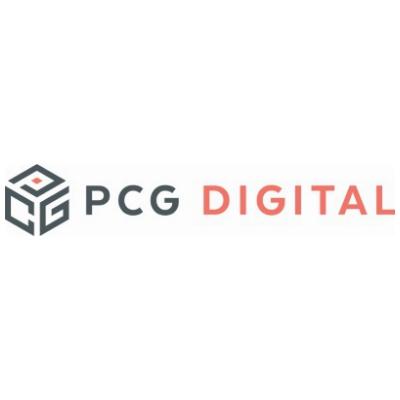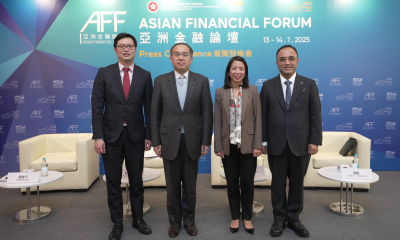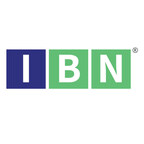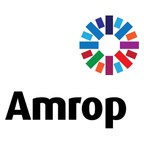Fintech
UPDATE: LiveXLive Leverages Diverse Channel Strategy to Accelerate Marked Growth

New York, New York–(Newsfile Corp. – April 5, 2021) – PCG Digital — With over one million subscribers entering 2021, LiveXLive (NASDAQ: LIVX) is employing a multi-channel approach to accelerate their growth. The goal is to reach the 10 million mark by 2030, when the total available market (TAM) for music subscribers is estimated to be $1.2 billion.
On February 11th, LIVX released a report that showed record growth for an eleventh consecutive quarter. Revenue for the quarter increased 96.9% YOY to $19.1 million. The total projected revenue for fiscal 2021 is expected to be between $64 million and $69.5 million.
That’s not all. Shareholder equity increased by $23.5 million, and cash was increased from $5.2 million to $17.6 million during the quarter. All of this occurred after two major acquisitions in 2020. PodcastOne was acquired in July, Custom Personalized Solutions (CPS) in December.
Music Content Distribution with LiveXLive Slacker Radio
Every great product or service needs a delivery mechanism. For LIVX, that’s Slacker Radio. They had over two billion audio listens in 2020, 63 billion since their inception. With an ever-increasing hunger for subscription music, those numbers are expected to increase this year.
Ranked as the best quality music app and Editor’s Choice by PC Magazine, one of the keys to success in 2021 is their listeners’ desire for live music. Obviously, live music was limited during the COVID-19 pandemic, but 74% of concert fans said they will continue to watch livestreaming events even after physical events resume. LiveXLive, Slacker Radio and React will be streaming these shows in-person.
PodcastOne Adds Another Dimension and New Listeners
Widely regarded as a premier music distributor, LIVX diversified their offering in 2020 with the acquisition of PodcastOne, a company that grossed $27.5 million on its own in 2019. PodcastOne generates more than 2.25 billion downloads per year with 400+ episodes distributed per week across a stable of hundreds of top podcasts.
This was a big win. The founder of PodcastOne, Norm Pattiz, is the brains behind the explosive growth of Westwood One Radio, the largest audio network in America. The acquisition does more than just diversify the LIVX product line, it brings over existing listeners. PodcastOne’s “LadyGang” podcast recently hit one hundred million downloads. In addition to Keltie Knight, Becca Tobin and Jac Vanek from LadyGang, the network also features podcasts from Adam Carolla, Pitbull, Brett Favre, Kaitlyn Bristowe, Todd and Julie Chrisley, Michael Irvin, and Mike Tyson. Followers of these shows now have full access to music on Slacker Radio.
CPS Acquisition Helps Expand Social Media Footprint
Custom Personalized Solutions (CPS) is an eCommerce platform that generated $20 million in revenue in 2020 prior to the LIVX acquisition. The deal was done debt-free and comes with approximately $5.2 million in working capital.
The financial numbers on this acquisition look great, but they are not the only benefit to the deal. LiveXLive is planning to use the CPS platform to partner musical artists and influencers with large networks to improve their social media footprint.
CPS also provides a direct-to-consumer eCommerce platform, opening up new opportunities for monetization. The global licensed merchandise market is expected to reach $400 million in the next two years, so this partnership will further help accelerate growth at LIVX.
New Networks Increase Sponsorship and Advertising Revenue
Offering integrated channels as a venue to reach younger listeners has already paid off for LIVX in their multi-year livestream partnership with iHeartRadio. With podcasts and eCommerce, they are now able to offer expanded sponsorship opportunities.
Some of the bigger names that have gotten behind the LIVX growing media empire are Pepsi, McDonald’s, Porsche, Mike’s Hard Lemonade, and Capital One. These are in addition to integrated sponsorship and merchandise programs with top name artists and musicians.
The Company also has a deal with Tesla to provide a one-year paid subscription to Slacker Radio in all new electric Tesla models sold in the United States. That number is expected to be roughly 750,000 units, a 50% increase over Tesla sales numbers from last year.
Stock Market Outlook for LIVX in 2021
Subscription revenue, which was 94% of revenue in February 2020, is now just 44% of revenue. The other 56% is coming from advertisers. Revenue for 2022 is estimated at $90 million to $100 million, and that’s assuming no revenue from live events, which are still on hold. The 2020 acquisitions of PodcastOne and CPS have facilitated a diversification in revenue streams that makes the company outlook promising.
In summary, most analysts covering the Company rate it as a strong buy, and investors can potentially see a nice return on LIVX in 2021 if fundamentals continue to improve.
Disclaimer
This communication was produced by PCG Digital Holdings, LLC, an affiliate of PCG Advisory Inc., (together “PCG”). PCG is an integrated investor relations, communications and strategic advisory firm. The information contained on this may be ‘Paid Advertising’ for purposes of Section 17(b) of the Securities Act of 1933, as amended (together with the rules and regulations there under, the “Securities Act”). PCG may be compensated by respective clients for publicizing information relating to its client’s securities. For more information in terms of compensation received for services provided by PCG, see the pertinent advertising materials relating to the respective client. By accessing this Site and any pages thereof, you agree to be bound by the Terms of Use and Privacy Policy.
PCG is not a registered or licensed broker, dealer, broker-dealer, investment adviser nor investment manager, nor does PCG engage in any activities that would require such registrations. PCG does not provide investment advice, endorsement, analysis or recommendations with respect to any securities, and its services to or statements about its clients should never be construed as any endorsement of or opinion about any security of any client. No information contained in this communication constitutes an offer to sell, a solicitation of an offer to buy, or a recommendation of any security or any other similar product or service regardless of whether such security, product, or service is referenced in this communication. Further, nothing in this communication is intended to provide tax, legal, or investment advice and nothing in this communication should be construed as a recommendation to buy, sell or hold any investment or security or to engage in any investment strategy or transaction. For full disclaimers, including compensation received for professional services, please visit www.pcgadvisory.com/disclosures.
Contact: [email protected]
Fintech
Asian Financial Forum held next week as the region’s first major international financial assembly of 2025

The 18th Asian Financial Forum 2025 (AFF), co-organised by the Government of the Hong Kong Special Administrative Region (HKSAR) and the Hong Kong Trade Development Council (HKTDC), will be held at the Hong Kong Convention and Exhibition Centre (HKCEC) on 13 and 14 January (Monday and Tuesday). As the region’s first major international financial conference in 2025, the forum will examine the landscape for new business opportunities in various industries and regions in the coming year and promote global cooperation, and is expected to attract more than 3,600 finance and business heavyweights.
Themed “Powering the Next Growth Engine”, the AFF will bring together more than 100 global policymakers, business leaders, financial experts and investors, entrepreneurs, tech companies and economists to share their views on the shifting global economic landscape and financial ecosystem. These industry experts will dissect the risk management strategy, discover new business opportunities, and explore how Hong Kong can seek breakthroughs in a period of change.
First flagship financial event to showcase Hong Kong’s financial strengths
Launched in 2007, the AFF has become a flagship financial event for Hong Kong and the broader region, highlighting the city’s pivotal role as a globally renowned financial hub with a highly competitive economic and business environment. Amid a rapidly changing global macroeconomic landscape, and shifts in geopolitical dynamics and monetary policies, Hong Kong’s financial services sector continues to leverage its strengths across various domains, drawing on its world-class business infrastructure and robust regulatory regime to help drive cooperation and mutual success across Asia and around the world.
Christopher Hui, Secretary for Financial Services and the Treasury of the HKSAR Government, said: “Hong Kong’s financial market went through a lot of reforms and innovation last year. We have also launched a roadmap on sustainability disclosure in Hong Kong and issued a policy statement on responsible application of artificial intelligence in the financial market with a view to boosting green finance and sustainable financing. The upcoming Asian Financial Forum will gather the top-tier of the financial and various sectors from all around the world, the Mainland and in Hong Kong and hence is the perfect occasion for us to showcase to the world the new momentum and latest advantages of Hong Kong in the financial realm. Participants will also have a chance to learn more about how Hong Kong can partner with them to explore new collaborations and development areas while expanding their network here.”
Luanne Lim, Chairperson of the AFF Steering Committee and Chief Executive Officer, Hong Kong, of HSBC, said: “The global economy faces greater uncertainties in 2025 compared to 2024. However, robust growth in India and ASEAN nations, combined with increased policy support from Mainland China, is expected to keep Asia’s (ex-Japan) GDP growth at a strong 4.4%, well above the global average of 2.7%.” Against this backdrop, this year’s Asia Financial Forum is aptly themed “Powering the Next Growth Engine” and will focus on high-potential markets such as ASEAN, the Middle East (particularly the Gulf Cooperation Council countries), and the role that Hong Kong can play. Ms Lim said Hong Kong’s unique role as a bridge between the mainland and international markets allows it to support mainland enterprises expanding globally. She added that Hong Kong is committed to attracting global talent and investors, driving growth for both mainland and international businesses.
Patrick Lau, HKTDC Deputy Executive Director, said: “As we move into the new year, different economies around the world are facing challenges in maintaining economic growth. As an international financial centre, Hong Kong is playing an important role both as a ‘super-connector’ and a ‘super value-adder’ to link the world, enabling investors and fundraisers to leverage the city’s professional services and investment platforms to facilitate collaboration and create business opportunities. This year’s forum not only brings together heavyweight speakers and thought leaders but also builds on the success of previous years to provide a business platform for international participants, promoting financial and business cooperation and working together to launch new engines for growth.”
Exploring new trends as the world’s economic centre of gravity continues its shift east
Reflecting on a trend where the world’s economic centre of gravity continues to take an eastward shift, Christopher Hui will host two plenary sessions on emerging prospects in the region on the first day of the forum (13 January). The morning session of Plenary Session I will feature H.E. Adylbek Kasymaliev, Prime Minister of Kyrgyzstan, finance ministers from countries such as Pakistan and Luxembourg, and Yoshiki Takeuchi, Deputy Secretary-General of the Organisation for Economic Co-operation and Development (OECD), who together will explore the financial policy outlook for 2025. In the afternoon, Plenary Session II will bring together leaders from multilateral organisations to share their views on the role of multilateral cooperation in regional economic development. Speakers will include Roberta Casali, Vice-President, Finance and Risk Management, Asian Development Bank; Jin Liqun, President and Chair of the Asian Infrastructure Investment Bank (AIIB); and Satvinder Singh, Deputy Secretary-General for ASEAN Economic Community, Association of Southeast Asian Nations (ASEAN). Moreover, a new session, the Gulf Cooperation Council Chapter, will bring together HE Jasem Mohamed AlBudaiwi, Secretary General of the Gulf Cooperation Council (GCC), speakers from the Middle East and local experts to discuss prospects in fostering financial cooperation and investment between the member states of the GCC and Hong Kong.
Also on the first day, Eddie Yue, Chief Executive of the Hong Kong Monetary Authority, will host the Policy Dialogue session with speakers including European representatives such as Philip Lane, Chief Economist and Member of the Executive Board of the European Central Bank, and Dr Olli Rehn, Governor of the Bank of Finland. The discussion will explore the opportunities and challenges arising from the global shift towards more accommodative monetary policies and national authorities’ strategic deployment of measures to revitalise their economies and accelerate growth through innovation.
The panel discussion on China Opportunities returns this year with senior figures invited to analyse investment prospects under China’s commitment to technological innovation and its impact on global business. The panellists included Li Yimei, Chief Executive Officer of China Asset Management; and Ken Wong, Executive Vice President of Lenovo and President of Lenovo Solutions & Services Group.
Top economist and leading AI expert take the stage at keynote luncheons
Another highlight of this year’s AFF will be the two keynote luncheons featuring thematic speeches by two distinguished guests: Prof Justin Lin Yifu, Chief Economist and Senior Vice President of the World Bank (2008-2012), and Prof Stuart Russell, Co-chair of the World Economic Forum Council on AI. These two prominent figures will dissect the evolution of the global economic landscape amid changing international dynamics, and examine how artificial intelligence (AI) is emerging as a new driving force for rapid global economic growth respectively.
Exploring hot topics in the financial and economic sectors
The afternoon panel discussion, Global Economic Outlook, will feature a special address from Liu Haoling, Vice Chairman, President and Chief Investment Officer, China Investment Corporation. The panel will analyse international economic trends and provide insights into business opportunities and wealth accumulation in emerging industries and regions in 2025.
Other sessions titled Global Spectrum, Dialogues for Tomorrow and Thematic Workshop will feature in-depth discussions focusing on the latest industry trends, including AI, Web 3.0, sustainability, philanthropy and family offices. As AI becomes increasingly widespread and diversified in its societal applications, the second day of the forum will introduce a special session, Dialogue with Kai-Fu Lee, in which Dr Kai-Fu Lee, Chairman of Sinovation Ventures, will discuss the transformative power of AI and its impact on technological advancements in the global business ecosystem.
Exploring the impact of sustainable disclosure on investment strategies
Sustainable finance and environmental, social and governance (ESG) considerations have become an irreversible global trend. In 2025, Hong Kong is set to fully align its regulatory framework with the sustainability disclosure standard of the International Sustainability Standards Board (ISSB). Sue Lloyd, Vice Chair of the ISSB, will join other experts in discussing how adopting international financial sustainability disclosure standards can strengthen market confidence in Hong Kong’s capital markets, address post-COP29 implementation in Asia, and share strategies for sustainable investing across three separate sessions. In addition, the Breakfast Panel on the second day will focus on the flows of transition finance in shaping a sustainable future in the Greater Bay Area and beyond. Furthermore, the HKTDC has partnered with EY to conduct a joint market survey on sustainable development, aiming to explore the views and practices of Asian businesses and investors on topics such as sustainability reporting, sustainable finance and preparations for dealing with climate change. The results of the survey will be unveiled on the first day of the forum.
Expanding cross-border opportunities through the HK global investment platform
As a key element of this year’s forum, AFF Deal-making offers one-on-one matching services for project owners and investors. More than 270 investors and 560 projects are expected to participate, with investment opportunities across industries such as environmental, energy, clean technology, food and agriculture tech, healthcare tech, fintech and deep technology. The exhibition sections of the AFF – Fintech Showcase, InnoVenture Salon, FintechHK Startup Salon and Global Investment Zone – will attract more than 130 local and global exhibitors, international financial institutions, technology companies, start-ups, investment promotion agencies and sponsors, including Knowledge Partner EY, HSBC, Bank of China (Hong Kong), Standard Chartered Bank, UBS, Prudential, China International Capital Corporation (CICC), Huatai International and more. Notably, the InnoVenture Salon will provide a platform for more than 100 start-ups to showcase innovative technologies in a variety of fields such as finance, regulation, sustainability, health and agriculture, supported by more than 110 Investment Mentors and Community Partners.
IFW 2025 creates synergies with AFF to boost mega event economy
International Financial Week (IFW) 2025 runs from 13 to 17 January with the AFF as its highlight event. This year’s IFW will feature more than 20 partner events, covering a wide range of global financial and business topics, including private equity, family offices, net-zero investing and generative AI. As the region’s first major financial event of the year, the AFF attracts top global enterprises and leaders to Hong Kong, creating connections between capital and opportunities. The forum assists industry professionals in seizing opportunities in the new year and helps promote the mega event economy in Hong Kong.
This year, the AFF has collaborated with various organisations to provide special travel, dining and shopping discounts and privileges for overseas participants joining the event. Activities include Peak Tram and Sky Terrace trips, the iconic Aqua Luna red-sail junk boat, and guided tours of Man Mo Temple and Tai Kwun arranged by the Hong Kong Tourism Board. Participants can also enjoy dining discounts and guided tours from the Lan Kwai Fong Group, as well as the Winter Wonderland at the Hong Kong Jockey Club’s Happy Wednesday at Happy Valley Racecourse, all designed to immerse overseas visitors in the vibrancy and diversity of Hong Kong.
The post Asian Financial Forum held next week as the region’s first major international financial assembly of 2025 appeared first on News, Events, Advertising Options.
Fintech
Fintech Pulse: Your Daily Industry Brief (Chime, ZBD, MiCA)

As we close out 2024, the fintech industry continues to deliver headlines that underscore its dynamism and innovation. From IPO aspirations to groundbreaking regulatory milestones, today’s updates highlight the transformative power of fintech partnerships, regulatory evolution, and disruptive technologies. Here’s what you need to know.
Chime’s Quiet Step Toward Public Markets
Chime, the U.S.-based financial technology startup best known for its digital banking services, has taken a significant step by filing confidential paperwork for an initial public offering (IPO). As one of the most valuable private fintechs in the U.S., Chime’s move could potentially signal a renewed appetite for fintech IPOs in a market that has been cautious following fluctuating valuations across the tech sector.
With a valuation that reportedly exceeded $25 billion in its last funding round, Chime’s IPO could set a new benchmark for the industry. Observers note that its strong customer base and revenue growth may make it an appealing choice for investors seeking to capitalize on the digital banking boom. However, the timing and success of the IPO will depend on broader market conditions and the regulatory landscape.
Source: Bloomberg
ZBD’s Pioneering Achievement: EU MiCA License Approval
ZBD, a fintech company specializing in Bitcoin Lightning network solutions, has made history by becoming the first to secure an EU MiCA (Markets in Crypto-Assets Regulation) license. This landmark approval by the Dutch regulator positions ZBD at the forefront of compliant crypto-fintech operations in Europe.
MiCA, which aims to harmonize the regulatory framework for crypto-assets across the EU, has been a focal point for industry players aiming to establish legitimacy and expand their offerings. ZBD’s achievement not only validates its operational rigor but also sets a precedent for other fintech firms navigating the evolving regulatory landscape.
Industry insiders view this as a strategic advantage for ZBD as it broadens its footprint in Europe. By leveraging its regulatory approval, the company can accelerate its product deployment and establish trust with institutional and retail users alike.
Source: Coindesk, PR Newswire
The Fintech-Credit Union Synergy: A Blueprint for Innovation
The convergence of fintechs and credit unions continues to reshape the financial services ecosystem. Collaborative initiatives, such as the one highlighted in the recent partnership between fintech innovators and credit unions, are proving to be a potent force in delivering tailored financial solutions.
This “dream team” approach allows credit unions to leverage fintech’s technological expertise while maintaining their community-focused ethos. Key areas of collaboration include digital payments, personalized financial management tools, and enhanced loan processing capabilities. These partnerships not only enhance member engagement but also enable credit unions to remain competitive in an increasingly digital-first financial environment.
Industry analysts emphasize that such collaborations underscore a broader trend of traditional financial institutions embracing fintech-driven solutions to bridge service gaps and foster innovation.
Source: PYMNTS
Tackling Student Loan Debt: A Fintech’s Mission
Student loan debt remains a pressing issue for millions of Americans, and a Rochester-based fintech aims to offer relief through its cloud-based platform. This innovative solution is designed to simplify loan management and provide borrowers with actionable insights to reduce their debt burden.
The platform’s features include repayment optimization tools, personalized financial education, and seamless integration with loan servicers. By addressing the complexities of student loan management, this fintech is empowering borrowers to make informed decisions and achieve financial stability.
As the student loan crisis continues to evolve, solutions like this highlight the critical role fintech can play in addressing systemic financial challenges while fostering financial literacy and inclusion.
Source: RBJ
Industry Implications and Takeaways
Today’s updates underscore several key themes shaping the fintech landscape:
- Regulatory Milestones: ZBD’s MiCA license approval exemplifies the importance of regulatory compliance in unlocking growth opportunities.
- Strategic Partnerships: The collaboration between fintechs and credit unions demonstrates the value of combining technological innovation with traditional financial models to drive customer-centric solutions.
- Market Opportunities: Chime’s IPO move reflects a potential revival in fintech public offerings, signaling confidence in the sector’s long-term prospects.
- Social Impact: Fintech’s ability to tackle systemic issues, such as student loan debt, showcases its role as a force for positive change.
The post Fintech Pulse: Your Daily Industry Brief (Chime, ZBD, MiCA) appeared first on News, Events, Advertising Options.
Fintech
SPAYZ.io prepares for iFX EXPO Dubai 2025

Leading global payments platform SPAYZ.io has confirmed it will be attending iFX EXPO Dubai 2025 on 14 to 16 January. Exhibiting at Stand 64 at Trade Centre Dubai, SPAYZ.io’s team of professionals will be on hand providing live demonstrations of its renowned payment services for payment providers. Attendees will also receive exclusive insight into SPAYZ.io’s plans for 2025 alongside early early access to its upcoming plans for the new year.
SPAYZ.io delivers a host of payment solutions that leverage the latest technological innovations and open access to the fastest growing emerging markets across Africa, Europe and Asia. Over the past year, there has been huge demand for its Open Banking and local payment method services, alongside bank transfers, mass payouts, online banking and e-wallets.
Yana Thakurta, Head of Business Development at SPAYZ.io commented: “We look forward to once again participating at iFX Dubai to expand our network of partners and clients. It’s a fantastic way to kick off the year, connecting with thousands of industry leaders from FOREX platforms to trading companies, and everything in between.
“Our key goal for iFX Dubai EXPO 2025 is to expand our portfolio of solutions and geographies. We’re using this as an opportunity to partner with like-minded entities who share our ambition to provide payment solutions that are truly global.”
Come meet SPAYZ.io’s team at the Trade Centre Dubai at Stand 64. You can also book a meeting slot with a member of a team.
The post SPAYZ.io prepares for iFX EXPO Dubai 2025 appeared first on News, Events, Advertising Options.
-

 Fintech PR7 days ago
Fintech PR7 days agoBybit x Block Scholes Report: BTC Options Steady with Call-Put Parity, ETH Braces for Short-Term Volatility
-

 Fintech PR7 days ago
Fintech PR7 days agoArtificial Intelligence (AI) in Trading Market to Reach USD 35 Billion by 2030, Growing at a 10% CAGR | Valuates Reports
-

 Fintech3 days ago
Fintech3 days agoAsian Financial Forum held next week as the region’s first major international financial assembly of 2025
-

 Fintech PR7 days ago
Fintech PR7 days agoYear-opening Triumph: Arctech Lands a 1.5GW Solar Project Order in the UAE
-

 Fintech PR3 days ago
Fintech PR3 days agoOWIT Global Provides Alternative Delivery Models that Adapt to the Continuously Evolving Data Security Demands of the Industry
-

 Fintech PR4 days ago
Fintech PR4 days agoHyundai Motor Group Executive Chair Euisun Chung Outlines 2025 Vision Driven by Commitment to Innovation, Overcoming Challenges, and Creating Opportunities in New Year’s Message
-

 Fintech PR4 days ago
Fintech PR4 days agoZoomlion Accelerates Global Expansion with Localized Innovations in Saudi Arabia
-

 Fintech PR5 days ago
Fintech PR5 days agoPayroll Service Market Anticipates Strong Growth Amid Rising Automation Demand














